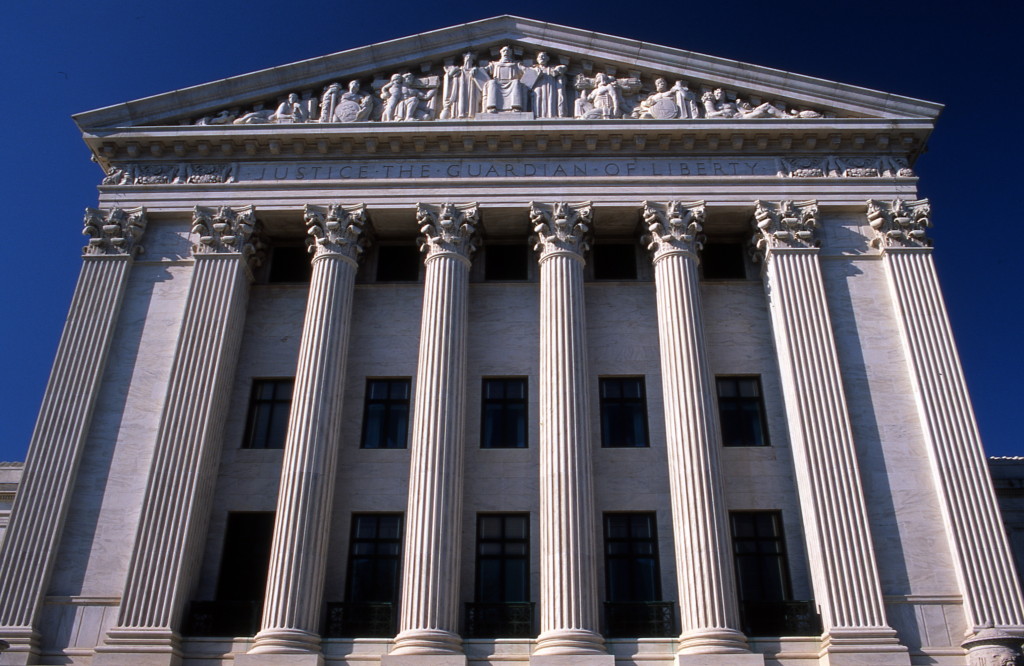
On Wednesday, the United States Supreme Court heard oral arguments in the case Espinoza vs. Montana Board of Revenue, a case that could have the effect of mandating public support for religious education. A verdict in favor of the plaintiffs would amount to a distinct undermining of the U.S. Constitution’s Establishment clause – an uneasy prospect for members of minority religions like those under the umbrella of modern Paganism, whose rights are already often infringed despite our supposed First Amendment rights.

U.S. Supreme Court [Wikimedia Commons]
On its face, Espinoza appears to be a matter for small claims court rather than the nation’s highest judges. At its core, the case concerns a now-defunct $150 tax credit for donations to organizations that provide scholarships for private schools. Montana’s Supreme Court ruled that this tax credit violated a clause in the state constitution which bans “direct or indirect” funding for schools that are “controlled in whole or in part by any church, sect, or denomination.” This clause is known as a “Blaine amendment” after James G. Blaine, a representative from Maine who attempted to pass a similar amendment to the U.S. Constitution in the 1870s. 39 states have Blaine clauses in their state constitutions.
As a result of the ruling, the Montana Supreme Court struck down the program in its entirety – the tax credit program no longer exists, and neither secular private schools nor those affiliated with churches can make use of it. But Espinoza claims that the Blaine amendment violates the federal constitution’s Free Exercise clause – and that once the state allowed public funding for any private schools, it is not only obligated to make that funding available to religious schools but that it cannot stop providing that funding at all. To do so, they argue, would be discrimination against their religious practices.
If the plaintiffs succeed in their case – which seems likely, given that Espinoza, like so many Supreme Court cases, looks like it will be settled along partisan lines – it could have a number of dramatic effects on the separation of church and state in the U.S. For starters, it would further expand the use of taxpayer dollars for religious indoctrination, something that up until 2002’s Zelman vs. Simmons-Harris was rejected by the court. It would also set a precedent that, once a state had instituted a program like the one in Montana, it would no longer have the authority to end that program once it was in place, putting the rights of states to make laws in a strange position.
The results could be even more radical than they first appear. While the base claim is that if the state provides aid to secular private schools, then it must also provide that aid to religious private schools, the argument of the plaintiffs could go much further than that. According to National Public Radio’s recap of the arguments, the plaintiffs’ argument could go beyond simply equating secular and religious private schools, but go all the way to claiming religious private schools have a right to state funding on a level with public schools:
Justice Stephen Breyer wondered where the plaintiffs’ equal-treatment argument would end. He noted major school systems spend billions in taxpayer money to fund the public schools. “If I decide for you,” he asked, would these school systems “have to give proportionate amounts to parochial schools?”
Deputy Solicitor General Jeffrey Wall, representing the Trump administration, basically answered “yes.”
“You can’t deny a generally available public benefit” to an otherwise qualified institution “based solely on its religious character,” he said.
This would have the ultimate effect of transferring a huge proportion of taxpayer dollars toward religious schools, which are not bound to the same standards as public schools and which are free to discriminate in ways that public schools cannot. (In the interest of full disclosure, the author is employed by a professional association that advocates for public education.) It would also, as pointed out by Monica Kristin Blair in the Washington Post, lead to a substantial transfer of taxes toward schools that have historically been less integrated than public schools, reinforcing the U.S.’s historical lack of investment in the education of racial and ethnic minorities.
What galls them most about Espinoza is that, in its myopic focus on the individual desires of certain parents to use public funding to support their private faiths, it would force everyone else to give aid to religious teachings they may find personally appalling. “We are a Christian family and I want those values taught at school,” said Kendra Espinoza, the lead plaintiff in the case, as an explanation for why she brought it forward. “Our morals as a society come from the Bible.” But many of us hold morals that are totally opposed to what gets taught in schools like the Stillwater Christian School, where Espinoza’s children attend, and which has policies that actively discriminate against LGBTQ students and employees.
It is certainly the right of Ms. Espinoza to believe as she wishes, and, although sad and unfortunate, it is her right to send her children to be educated in those beliefs. But how is it right to force those of us who believe otherwise to fund that decision?
The continued wearing-away of the separation between church and state only benefits the religions who have enough power and capital to influence the state; Espinoza is just the latest attempt to give primarily Christian schools access to have public funds without any of the public accountability that should come with them.
The Wild Hunt is not responsible for links to external content.
To join a conversation on this post:
Visit our The Wild Hunt subreddit! Point your favorite browser to https://www.reddit.com/r/The_Wild_Hunt_News/, then click “JOIN”. Make sure to click the bell, too, to be notified of new articles posted to our subreddit.